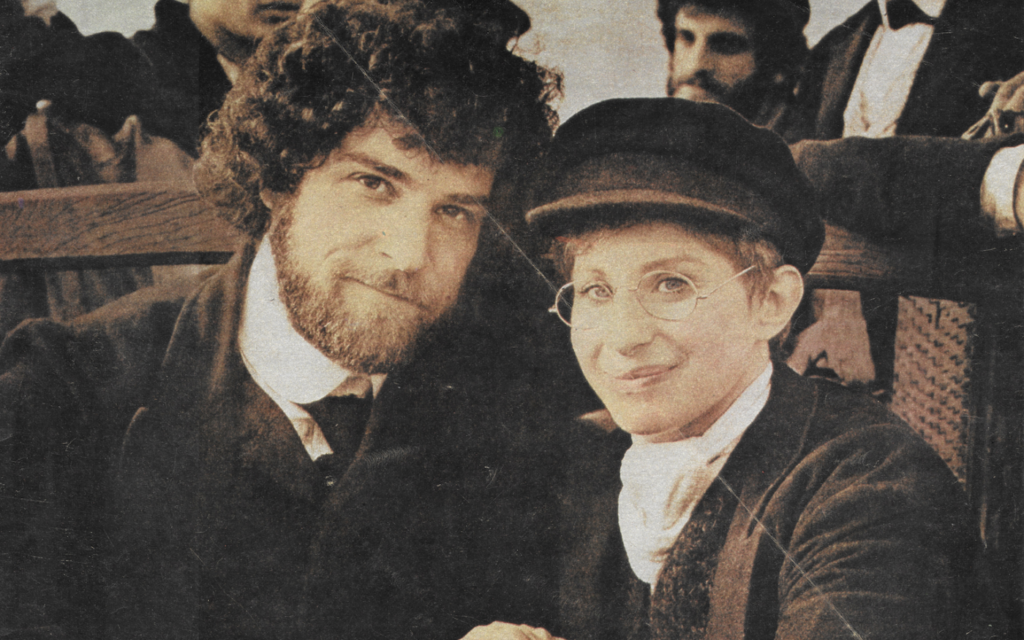Who died during the making of Yentl? Actor Mandy Patinkin wants to remember
The star of Sondheim's musicals, The Princess Bride and TV's Homeland shares a mystery ahead of his one-man show in London
My phone rings and it’s an unfamiliar American phone number. I answer it, dubiously, and a man’s gruff voice demands: “Is that Jenni Frazer?”
“Yes,” I say. “This is Mandy Patinkin,” growls the caller. And we are off on part two of one of the most surreal interviews I have ever done. For Patinkin — actor, singer, musician, Broadway star and the supreme interpreter of Stephen Sondheim’s singular stage musicals — is a one-man anecdote machine.
In most interviews you have to prod a little to get the story. Not with Patinkin. You barely get a question in, it’s much more ‘wind him up and let him go’. We are talking because Patinkin is due in London for an eight- show residency at the Lyric Theatre. It’s his first appearance in the UK since 2009 and it’s just him and pianist Adam Ben-David, for an eclectic programme whose contents he won’t reveal — since he changes the running order at every concert.
Get The Jewish News Daily Edition by email and never miss our top stories Free Sign Up
And we are talking — on this second occasion — because Patinkin temporarily feared “that I had lost my mind”.
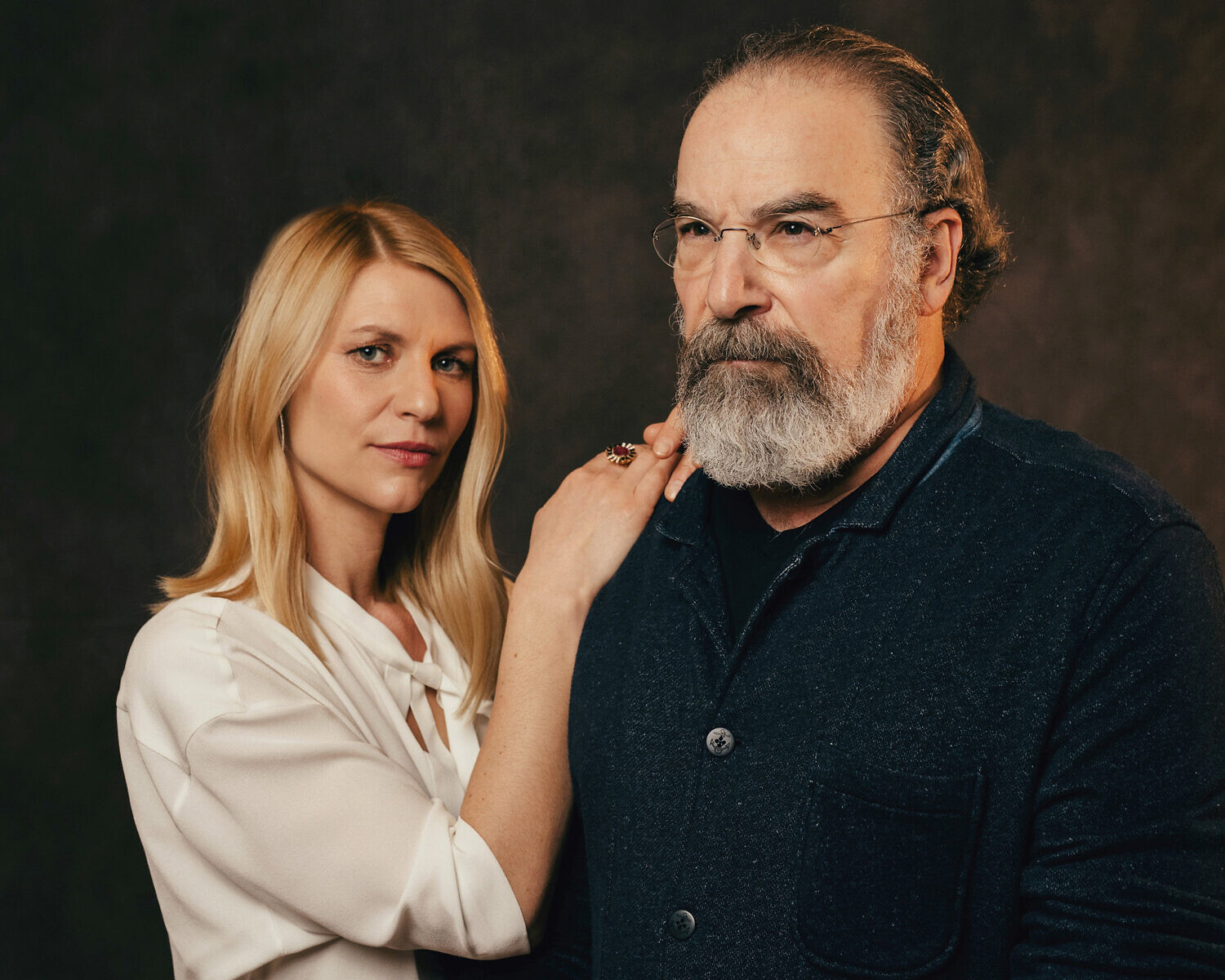
Besides endearing himself to audiences as the avuncular CIA agent Saul Berenson in the spy thriller series, Homeland — a remake of the Israeli hit, Prisoners of War — Patinkin found fame in two mega-hit films, The Princess Bride and Barbra Streisand’s Yentl. It was Avigdor the yeshiva student with whom Streisand’s character falls madly in love in early 20th century Poland, that turned Patinkin into an international household name. In 1983 he was in fact deemed the thinking woman’s sex symbol and blessed with a voice that Stephen Sondheim once called “a gift from God.”
But it is an apparent memory lapse about Yentl and not his beatific singing that that has prompted this second conversation.During our first chat Chicago-born Patinkin (Mandy is his nickname — his full name is Mandel Bruce Patinkin) told me some back stories about the making of Yentl.
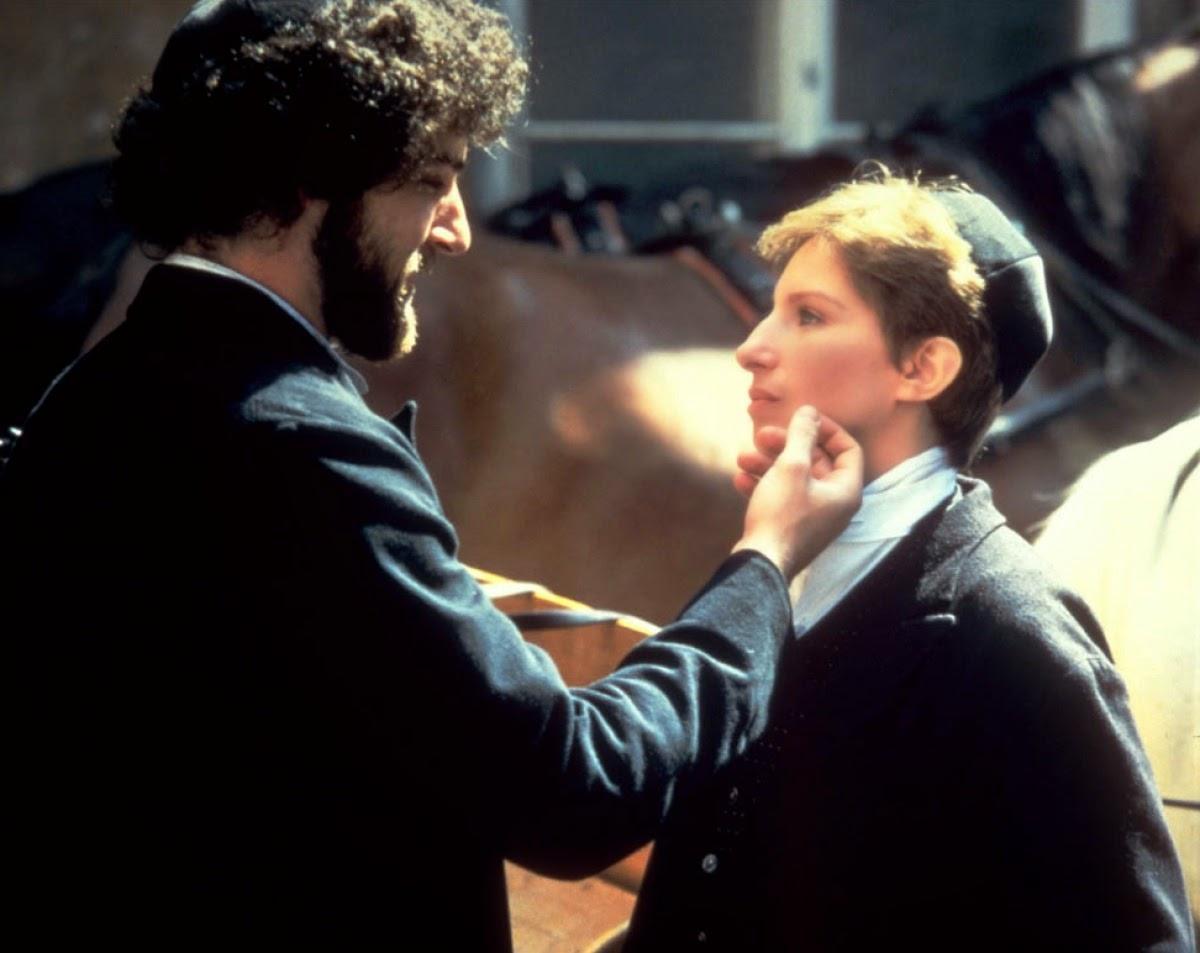 He revealed that “before filming started Barbra asked me to visit yeshivas. She gave me a little spy camera and I went first to a yeshiva in Skver [upstate New York] and then to Ohr Sameach in Israel. She had spent 13 years on this project and there were about 23 different scripts; she wanted everybody to do as much research as possible”.
He revealed that “before filming started Barbra asked me to visit yeshivas. She gave me a little spy camera and I went first to a yeshiva in Skver [upstate New York] and then to Ohr Sameach in Israel. She had spent 13 years on this project and there were about 23 different scripts; she wanted everybody to do as much research as possible”.
But it was at a London read-through “at Lee’s Lighting Studios” [in Wembley] that Patinkin experienced “one of the most unforgettable moments of my life. We sat around the table and there was an extraordinary actor, forgive me, I don’t remember his name, and he was playing the Yeshiva teacher. He was riveting. Every time this man spoke, the whole room would lean in to him. And when we finished, the room was about him — not about Barbra, or the film. It was about this extraordinary man”.
Patinkin’s memory of the actor was sharp: he had, he said, “smiled beatifically to the table of Yentl actors, put his head down — and died”.Everyone waited for him to get up, but he did not. The appalled cast and crew wondered if they could have done anything to save him, but after an autopsy, it was discovered that the actor had suffered “a massive heart attack and even if there had been a heart surgeon in the room, he could not have survived”.
“This man…” Patinkin breaks off. “If I had a wish of how I’d like to die, I’d want to be just like him. To be in the middle of a note, doing what I love best, singing, and take a breath, and then just put my head down for a minute. It was a beautiful thing”. But, frustratingly, Patinkin can’t remember the actor’s name. I do some post-interview research and a Streisand fan-site comes up with a name, Morris Carnovsky. But Carnovsky, a fabled Yiddish actor, actually died in 1992 — 10 years after the Yentl read-through.
I mention Carnovsky to Patinkin’s PR and it’s sufficiently irritating for the actor to get on the case — because he knows it wasn’t Carnovsky.
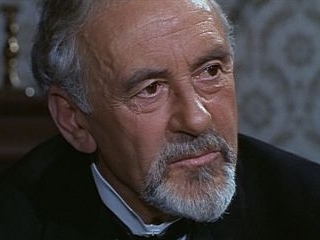
Instead, as he tells me on our second call, that he has contacted his friend, British actor Allan Corduner, who played Shimmele in Yentl and was present at the truly dramatic read-through. “Allan remembered,” Patinkin says. “It was March 22 1982, and the actor was Harold Goldblatt. Allan even remembered his last words. Harold stood up, said: ‘It’s all been wonderful, and I must go now’, sat down, and died. What a way to go.”
Though Mandy cheerfully declines to reveal more about the content of his London concerts — insisting that he “doesn’t want the audience looking at the programmes to see what I’m doing next” — Patinkin says he won’t go anywhere “without at least one Sondheim song and at least one Yiddish song”.
Ah, yes, Yiddish. Patinkin is famous — or should I say unique — for an album he made called Mammaloshen, or Mother Tongue, a collection of songs old and new in Yiddish. He is almost certainly one of the few Broadway stars to have recorded in Yiddish, though in his Chicago home it was not spoken. His family comes from Bransk in Poland and it was his “Grandpa Max” who arrived in America at Ellis Island in New York, spending his first nights in the US at headquarters of HIAS, the Hebrew Immigrant Aid Society.
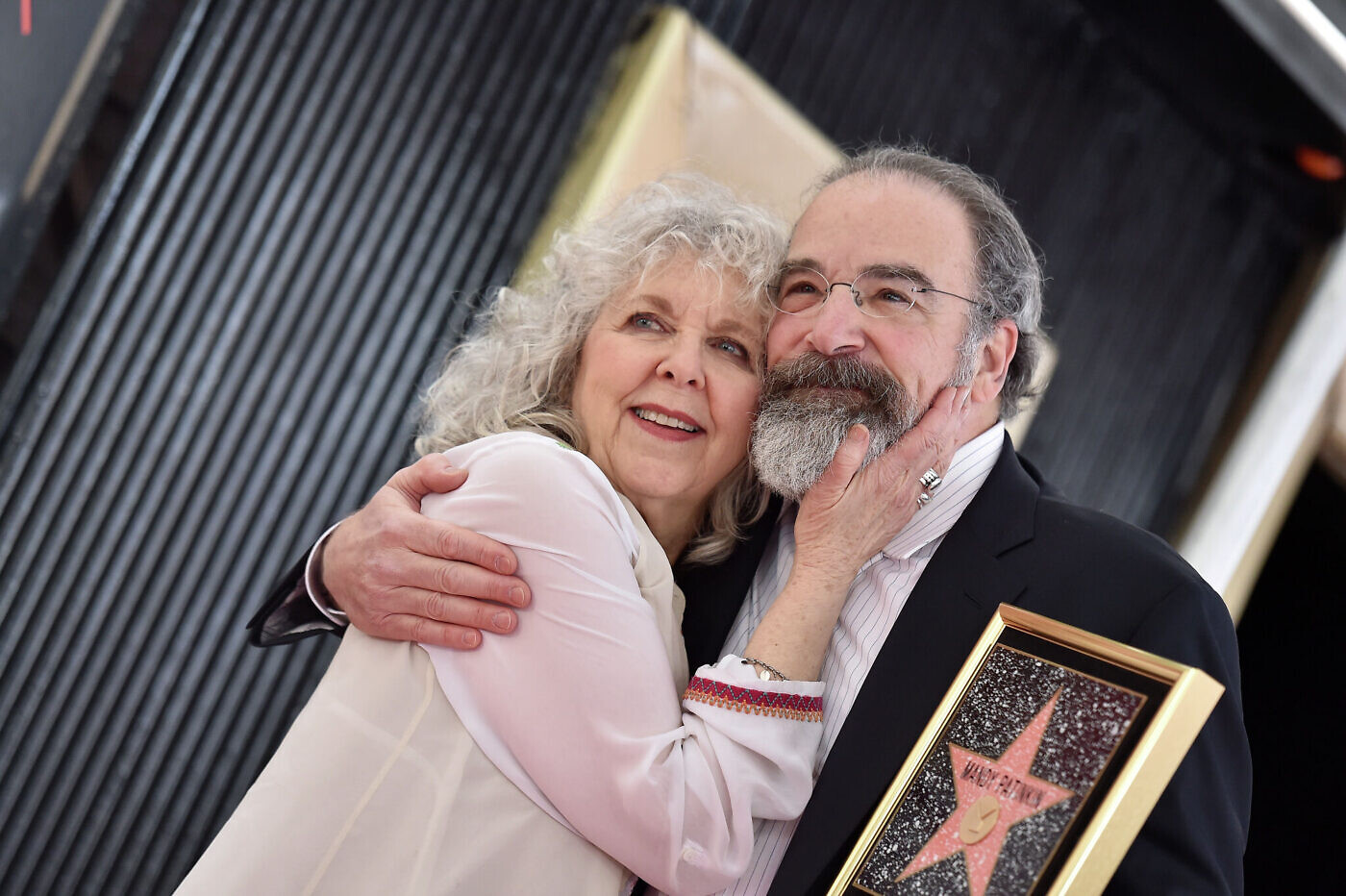
As Patinkin recalled in New Yorker magazine, the HIAS building in New York became the city’s Public Theatre. where Patinkin did a lot of his early acting. How Mandy came to sing Yiddish is, inevitably, another story.
“My dear friend and mentor was Joseph Papp, who created the Shakespeare in the Park festival. He signed the ketubah at our wedding (Patinkin is married to the actress Kathryn Grody)”.Papp asked Patinkin if he’d sing at a benefit for YIVO, the venerable New York-based Yiddish institute. Patinkin was happy to oblige, but said he didn’t know any Yiddish songs. Well, snarled Papp, it’s about time you learned one.
A lot of Yiddish…..
“He sent over this song, Yossel, Yossel, and we did it at the Shubert Theatre. I learned the song, and [at the benefit] they showed a film of the shtetl Joe Papp’s family came from. I sang the song… and it just hit mein the kishkes. I couldn’t understand why, other than maybe it was some DNA echo of my ancestry.” Not long after the YIVO event, Papp “came over for a Shabbos dinner” and trenchantly told Patinkin: “You’ve got the ability to sing, you’ve got to learn this stuff, make your contribution.”
Patinkin agreed, and began to search for teachers. He found Zalmen Mlotek, a musician and conductor, steeped in Yiddish tradition, and, like Patinkin himself, a graduate of the famed Juilliard School of Music. Mlotek is the artistic director of America’s National Yiddish Theatre Folksbiene, and, with his cousin Moshe Rosenfeld, devised the hit Yiddish version of Fiddler on the Roof performed by Joel Grey’s company. Another teacher was the Yiddishist musician Henry Sapoznik, a four-time Grammy nominated performer.
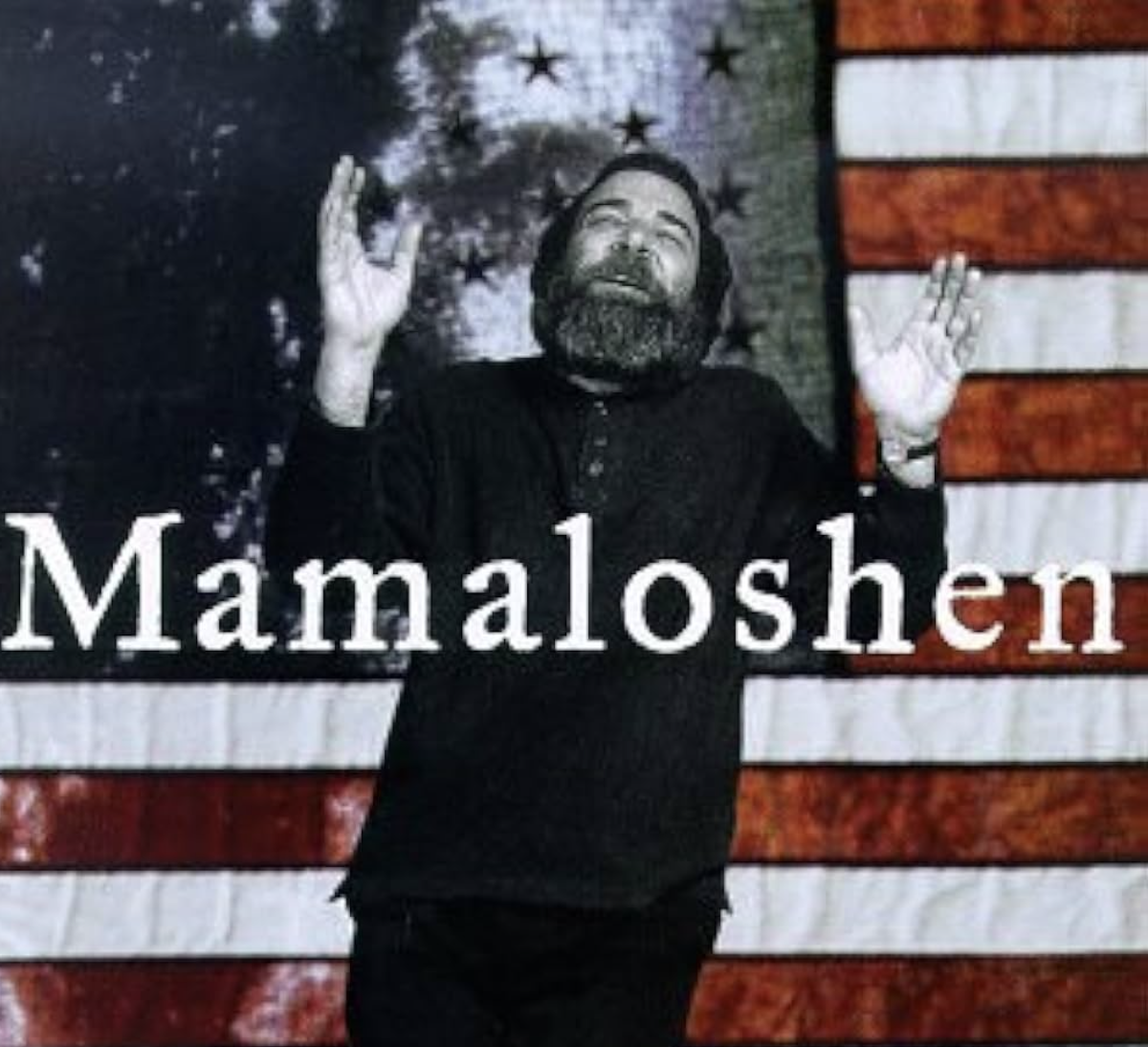 Mlotek, Rosenfeld and Sapoznik became Mandy Patinkin’s teachers, and he loved the songs. He was performing in Boston when Bob Hurwitz, president of Nonesuch Records, came to see him and said he’d be keen to work with him — did Mandy have anything in mind?
Mlotek, Rosenfeld and Sapoznik became Mandy Patinkin’s teachers, and he loved the songs. He was performing in Boston when Bob Hurwitz, president of Nonesuch Records, came to see him and said he’d be keen to work with him — did Mandy have anything in mind?
“You’re going to hate this,” said Patinkin. “But I’ve been working on Yiddish songs and I’d like to get them out there.” To his astonishment, Hurwitz said one word: “Perfect.” Thus began “the most extraordinary recording experience of my life”. For three days, with a full orchestra — most of whom had worked on Patinkin’s other records — Patinkin sang his heart out while his three teachers sat in the editing booth to make sure he was pronouncing the Yiddish properly. When the sessions ended, African and Asian members of the orchestra came over to Patinkin and told him that while they hadn’t understood a word he was singing, nevertheless they felt the power of the songs.
The experience was repeated when Patinkin began to perform the songs from Mamaloshen live on stage, and was applauded by audiences who included “nuns and priests. Then the nickel dropped: I wanted to examine my ancestry, my heritage. But the lesson was, whoever you are, whatever your heritage, you don’t need to understand a single word. Take a walk in that music, let it bathe over you, let those words wash over you”.
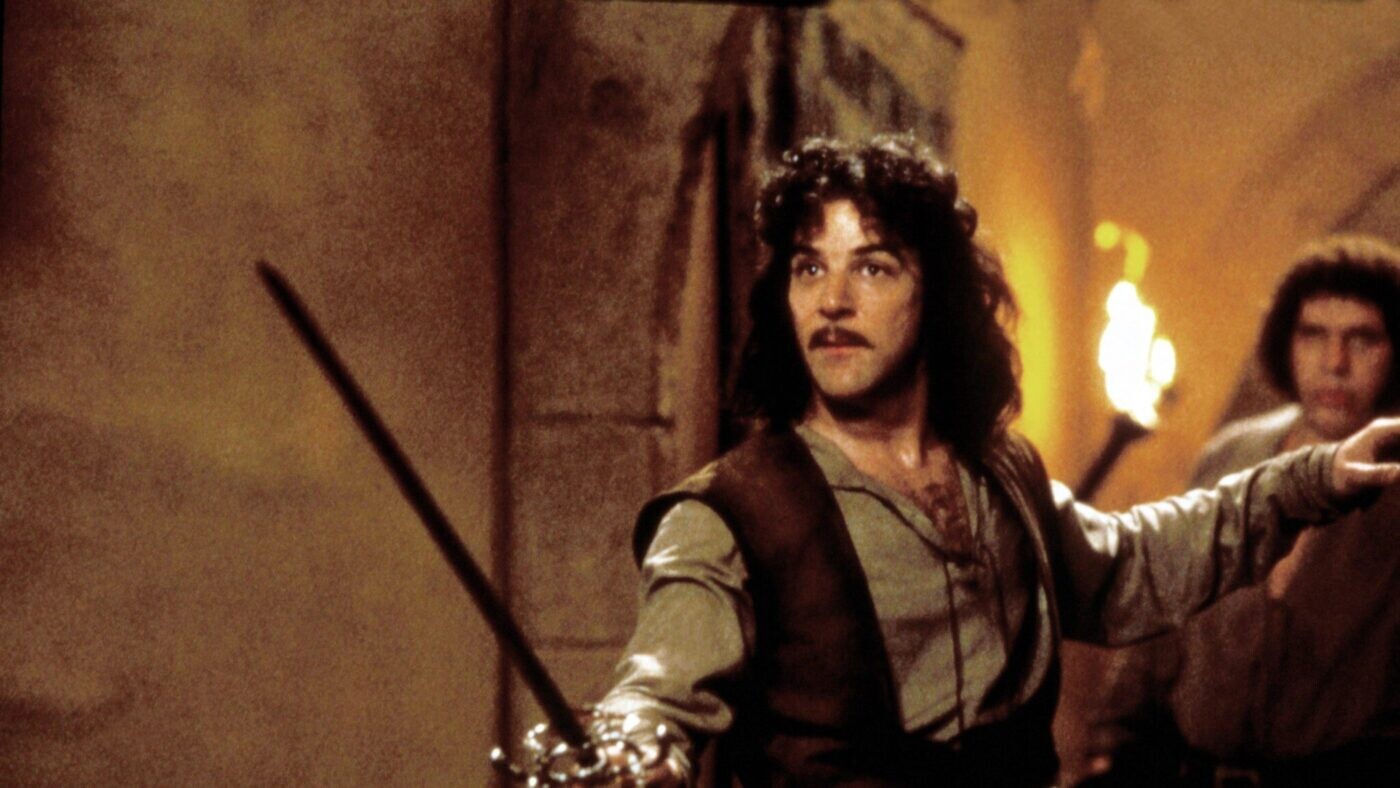
Patinkin’s all-or-nothing approach to his acting and music was on magnificent display in The Princess Bride, the 1987 film directed by Rob Reiner. Patinkin plays the Spanish swordsman Inigo Montoya, who has spent the previous years searching for the man who killed his father. His trademark line, frequently chanted at Patinkin by fans even today, was: “My name is Inigo Montoya. You killed my father. Prepare to die.”
To huge delight, when most of the cast re-assembled for a 2020 virtual read-through of The Princess Bride, to raise funds for the Wisconsin Democrats, Patinkin reprised his role — with his original sword from the film. Rob Reiner’s conceit in the film was to show sword-fighting on the same level as Errol Flynn’s athletic performances in the 1940s and 50s — preposterous and jaw-dropping.
Patinkin, recalling the film today, says that he had done a bit of fencing when performing Hamlet and Henry IV for Shakespeare in the Park, but when he read William Goldman’s script describing Montoya as “the world’s greatest sword-fighter”, he realised he had to up his game and did some intensive training with Henry Hartunian, the Olympic fencing coach at Yale.
“He taught me the skill of it, and it was thrilling,” says the actor who also reveals that there are only two stunt substitutions in the film, in which both Patinkin and co-star Cary Elwes do back flips before resuming swordplay. Anyone who loves The Princess Bride which appears on many top 100 films of all time lists, will appreciate knowing the finer details of Patinkin’s swordsmanship, but it does mean we have almost run out of time.
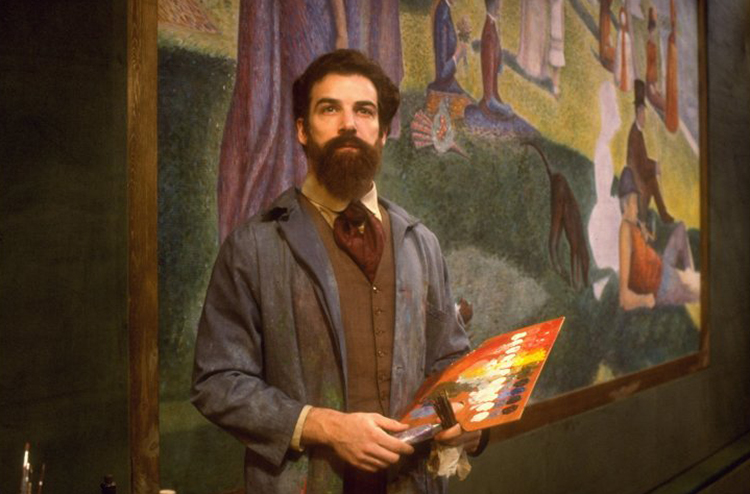
So, no chance to ask about the actor’s long-standing love affair with the work of Stephen Sondheim, for whom he originated the role of painter George Seurat in the Pulitzer Prize-winning musical, Sunday in the Park With George. Patinkin won his second Tony, the first was for playing Che Guevara in Andrew Lloyd Webber’s Evita in 1979.
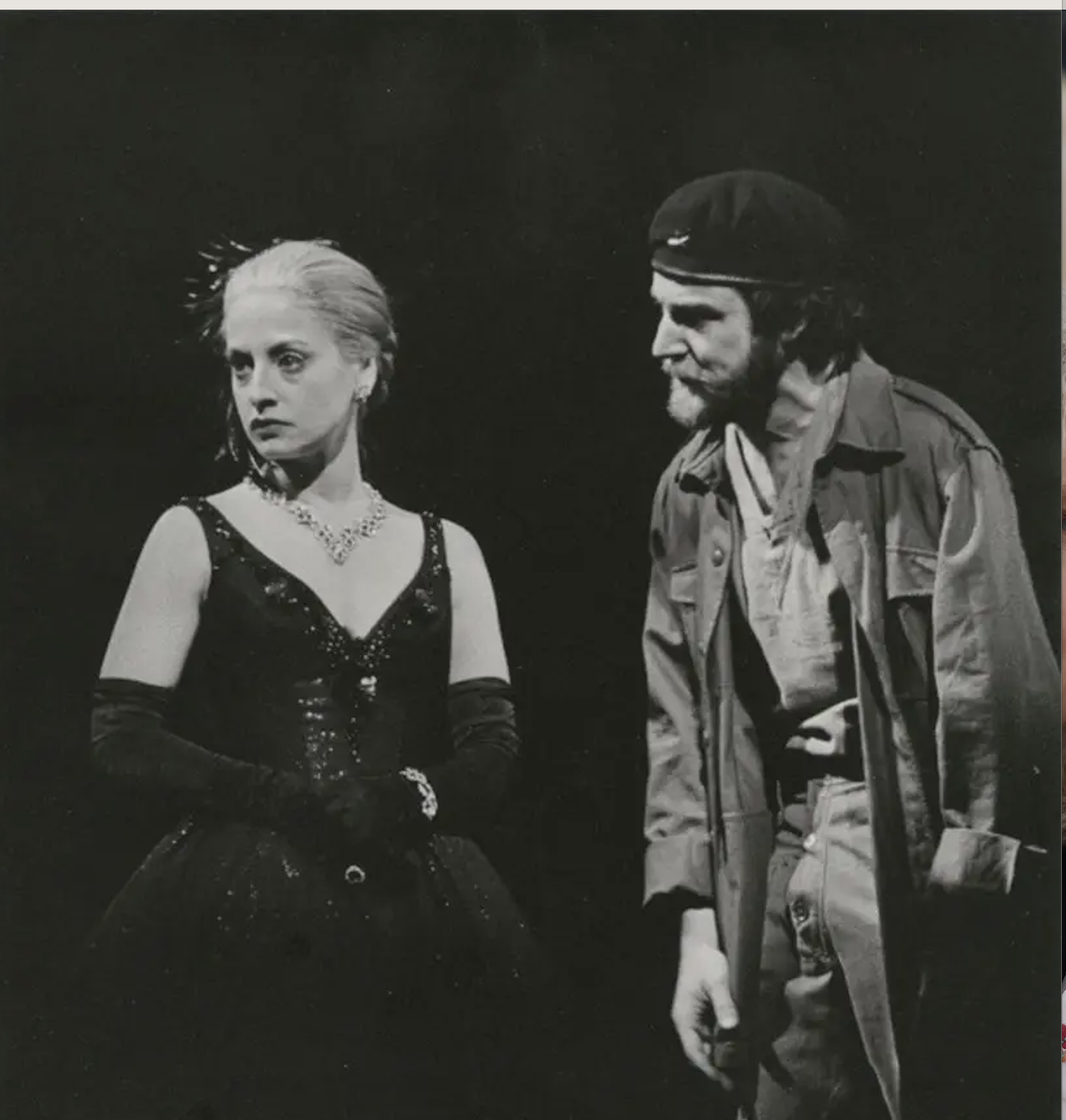
As Che Guevara with Patti Lu Pone as EvitaNow 70, the stage veteran turned unexpected internet star is focused on presenting the best possible show for his fans — the London concerts are part of an American and Canadian tour. He says: “I will be doing everything I can to give us all a good time, that’s why I made the shows. It’s so that we all feel alive.” Forty years after playing Yentl’s unrequited love interest, I can’t resist asking whether Ms Streisand might make a surprise guest appearance at any of his shows.
“That would be nice,” says Patinki,n who reports that the co-stars still see each other from time to time, “but that’s unlikely.” With so many stories and songs in his repertoire Mandy Patinkin is more than enough to fill any stage.
For tickets visit https://nimaxtheatres.com/shows/mandy-patinkin/

Thank you for helping to make Jewish News the leading source of news and opinion for the UK Jewish community. Today we're asking for your invaluable help to continue putting our community first in everything we do.
For as little as £5 a month you can help sustain the vital work we do in celebrating and standing up for Jewish life in Britain.
Jewish News holds our community together and keeps us connected. Like a synagogue, it’s where people turn to feel part of something bigger. It also proudly shows the rest of Britain the vibrancy and rich culture of modern Jewish life.
You can make a quick and easy one-off or monthly contribution of £5, £10, £20 or any other sum you’re comfortable with.
100% of your donation will help us continue celebrating our community, in all its dynamic diversity...
Engaging
Being a community platform means so much more than producing a newspaper and website. One of our proudest roles is media partnering with our invaluable charities to amplify the outstanding work they do to help us all.
Celebrating
There’s no shortage of oys in the world but Jewish News takes every opportunity to celebrate the joys too, through projects like Night of Heroes, 40 Under 40 and other compelling countdowns that make the community kvell with pride.
Pioneering
In the first collaboration between media outlets from different faiths, Jewish News worked with British Muslim TV and Church Times to produce a list of young activists leading the way on interfaith understanding.
Campaigning
Royal Mail issued a stamp honouring Holocaust hero Sir Nicholas Winton after a Jewish News campaign attracted more than 100,000 backers. Jewish Newsalso produces special editions of the paper highlighting pressing issues including mental health and Holocaust remembrance.
Easy access
In an age when news is readily accessible, Jewish News provides high-quality content free online and offline, removing any financial barriers to connecting people.
Voice of our community to wider society
The Jewish News team regularly appears on TV, radio and on the pages of the national press to comment on stories about the Jewish community. Easy access to the paper on the streets of London also means Jewish News provides an invaluable window into the community for the country at large.
We hope you agree all this is worth preserving.
-
By Brigit Grant
-
By Laurent Vaughan - Senior Associate (Bishop & Sewell Solicitors)
-
By Laurent Vaughan - Senior Associate (Bishop & Sewell Solicitors)
-
By Laurent Vaughan - Senior Associate (Bishop & Sewell Solicitors)
-
By Laurent Vaughan - Senior Associate (Bishop & Sewell Solicitors)


